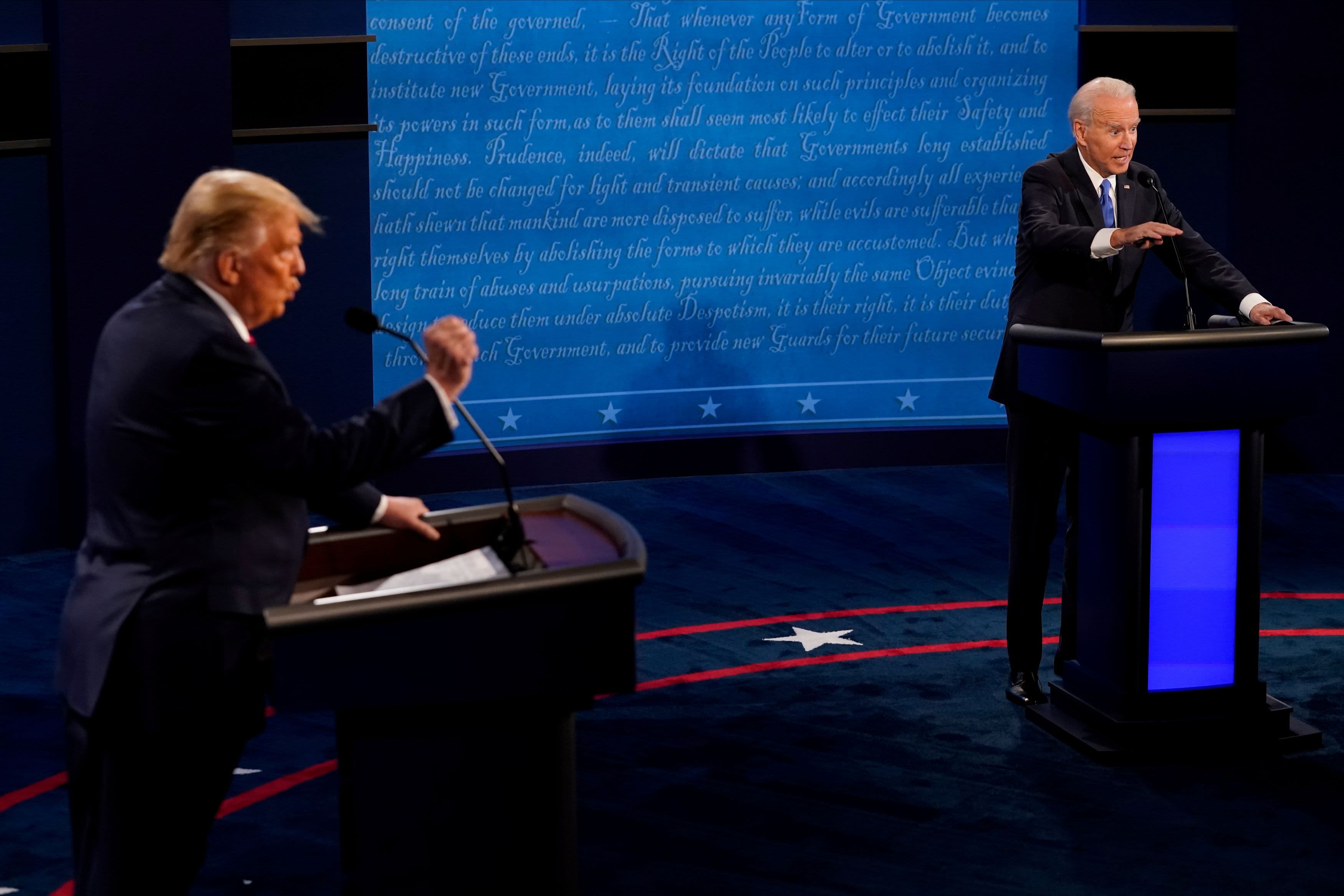
Does it matter for stocks who wins the White House? Is there anything unusual about the candidates this year that could impact the markets, regardless of who wins?
For answers, we turn to Ed Clissold, chief U.S. Strategist for Ned Davis Research, who has studied elections and the impact on markets going back to 1900.
This Q&A was derived from written research and an interview with Clissold. It has been edited for brevity.
There seems to be a lot of confusion about this election and the impact on the markets. What’s your take?
Part of the problem is that this is an unusual situation. The incumbent is in the middle of a recession and a big drop in the market, even though that occurred earlier in the year. I don’t mean a “recession” as technically defined by the National Bureau of Economic Research (NBER); I mean that a large portion of the U.S. believes we are in a recession.
Why is that perception important?
When those conditions are in place, the incumbent is a serious underdog. Since 1900, the incumbent party has won five times and lost nine when there was a 20% decline in the DJIA or a recession in the election year. But the last incumbent to win under these circumstances was Truman in 1948. Since 1952, no party has retained the White House when there was either a 20% decline in the markets or a recession, and both have taken place in 2020.
But isn’t this a unique recession? This was caused by Covid-19.
Yes. Because the cause of the 2020 recession is an exogenous shock, one of the biggest questions heading into the fall is whether voters will blame President Trump for the economy. Most recessions have a more complicated genesis than this one, and Trump is certainly trying to make the case that he is the better one to handle this.
Is there anything unique about Biden? He is proposing changes in the tax code on both a personal and corporate level. That matters to Wall Street, doesn’t it?
Yes. The main concerns we have heard from our clients is that higher taxes and more regulations would be detrimental to stocks.
OK, you’ve made it clear the circumstances are unusual this year. But what about the historical record? Does the stock market do better or worse when a Republican or a Democrat is in the White House?
The markets tend to go up whether there is a Democrat or a Republican in the White House. When adjusted for inflation, the Dow Jones Industrial Average has gained an average of 3.8% annually under Democrats since 1900, versus 1.1% under Republicans.
Why is that?
The President is not as influential on the economy as many people think. There are many factors that drive returns and who is in the White House is only one of many factors, including the fact that the U.S. is a capitalist society, where the means of production is mostly in private hands, and that there is a court system that enforces contracts.
What about when one party controls both the Congress and the White House?
When Republicans control both the Congress and the White House, returns have averaged 7.09% a year. Under Democratic presidents, the market has risen faster when there has been a check on their power. When Democrats control the Congress and the Presidency, the market has risen an average of 2.96% a year, but 5.21% with a Democratic President and a Republican Congress.
What about immediately after an election, going into the end of the year?
The market tends to perform better when the incumbent party wins than when the incumbent party loses.
Why is that?
It’s likely because the market often reacts to uncertainty, and a change in party leadership represents an additional unknown.
Does it matter for that short period whether it is a Republican or Democrat who has won or lost?
The strongest gains going into the end of the year occur when incumbent Republicans win, and the biggest losses when incumbent Republicans have lost, on average, likely because Republicans often positioned themselves as pro-business.
Does that outperformance when the Republicans have lost extend into the following year?
No. That relative performance has reversed in post-election years, with the strongest average gain in years following incumbent Republican losses.
So what does this tell us? Seems like this debate about the Republican vs. Democrat impact on stocks is a lot about perception.
Yes. Party control may be more about sentiment than fundamentals in most cases. Also, once the election is over, investors can focus on other things, like earnings, economic growth, or interest rates, so whatever sentiment-driven market action that occurs in the election year tends to fade and reverse itself.
Subscribe to CNBC PRO for exclusive insights and analysis, and live business day programming from around the world.






